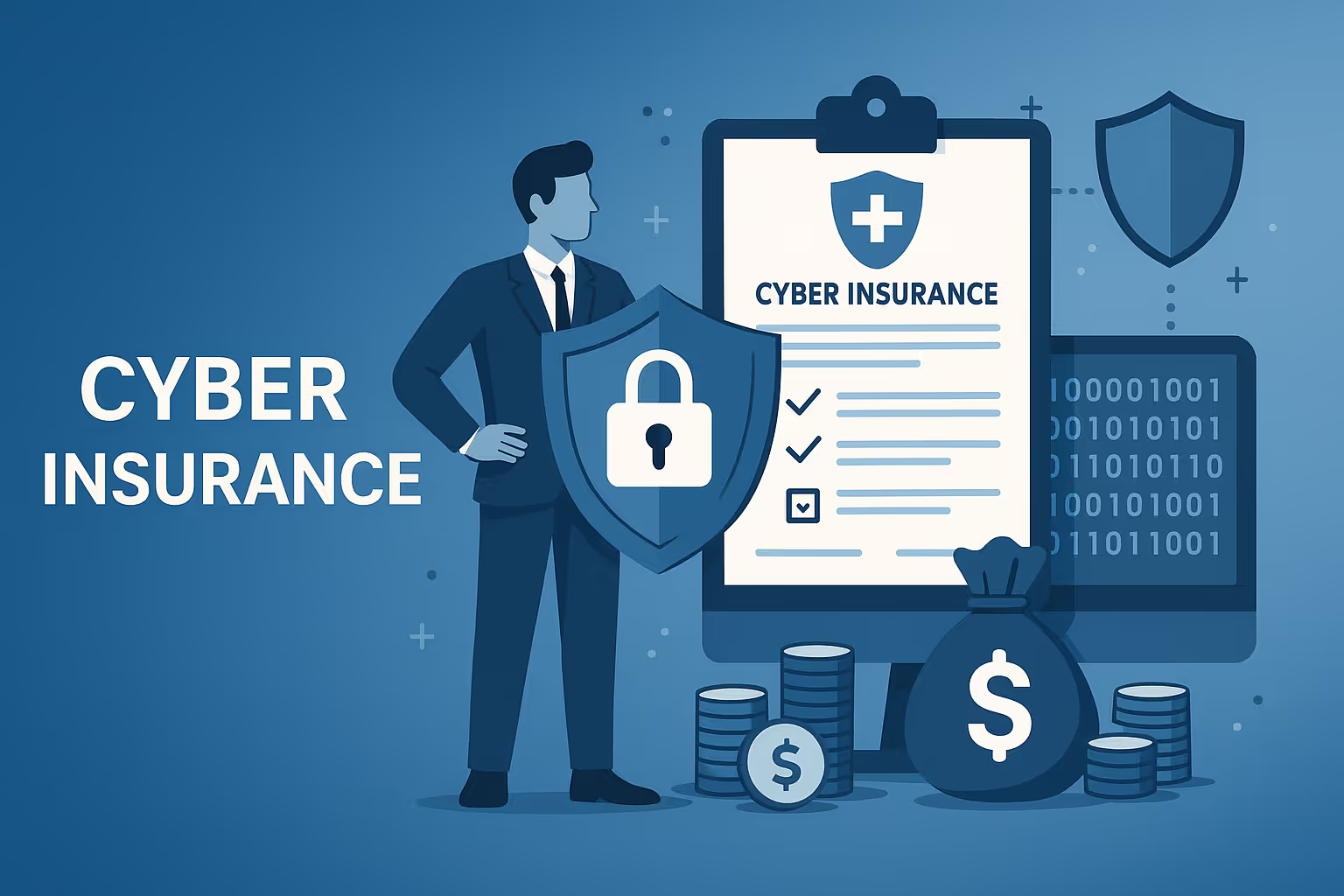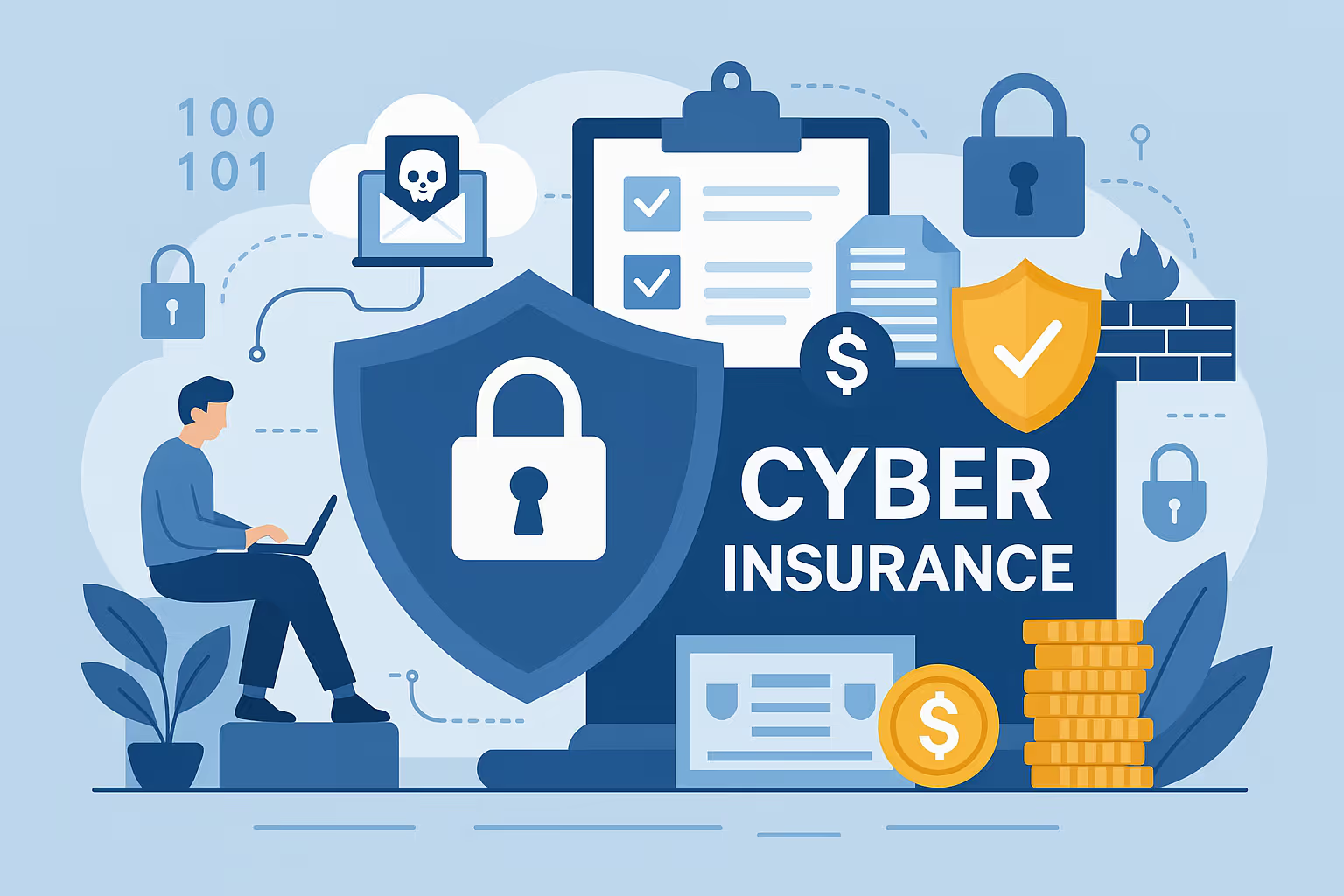
How to get...
For a Manufacturing company in the United States, a structured process is essential for obtaining cyber insurance. Understanding how to get cyber insurance for Manufacturing involves clear steps that include assessing risks, gathering documentation, identifying the right provider, and completing the underwriting process.
Following these detailed steps will help Manufacturing companies understand how to get cyber insurance for Manufacturing effectively while ensuring robust protection for operational continuity and regulatory compliance.

Who provides...
For companies in the manufacturing sector seeking cyber insurance for Manufacturing, there are three main categories of providers to consider. Each of these cyber insurance providers for Manufacturing in the United States offers distinct advantages based on the insurer’s portfolio, expertise, and claims handling process.
Manufacturers evaluating providers should prioritize insurers that understand industrial control systems and supply chain challenges. It is essential to consider the provider's claims track record, network security support, and their capacity to cover both standard data breach incidents and operational disruptions. Evaluating both the financial stability and the specialized technical expertise of the insurer will help manufacturers achieve solid risk mitigation and responsive support in times of cyber incidents.


Why need...
Manufacturing entities in the United States face unique cybersecurity threats that directly impact their production capabilities and supply chains. Operational technology (OT) vulnerabilities, interconnected industrial control systems, and IoT devices create multiple entry points for cybercriminals. Attacks such as ransomware, intellectual property theft, and supply chain intrusions can disrupt production lines, stop critical operations, and result in extensive financial loss. Cyber insurance for Manufacturing in the United States is essential in mitigating these risks by covering costs associated with data breaches, business interruptions, and remediation efforts, while also providing legal and regulatory support.
Implementing cyber insurance for Manufacturing not only helps cover the cost of forensic investigations, legal fees, and customer notification expenses, but also provides financial protection against business interruption losses. This insurance acts as a crucial safety net, enabling manufacturers to recover quickly and maintain stakeholder trust in a rapidly evolving threat landscape.
Cyber insurance coverage for Manufacturing in the U.S. includes protection against costs associated with data breaches and privacy liability. This coverage specifically addresses:
This coverage matters because manufacturing organizations handle sensitive intellectual property and supply chain data. It impacts operations by minimizing downtime during a breach, supports compliance with U.S. data protection laws, and enhances financial security by controlling unplanned expenses.
Cyber insurance coverage for Manufacturing addresses the loss of income and extra expenses incurred when cyber incidents disrupt production lines and supply chains. Key coverage components include:
This coverage is essential for manufacturing facilities where even brief disruptions can halt production and lead to significant financial losses. By protecting against interruption risks, organizations ensure continued operational resilience and robust compliance with production standards.
Cyber insurance coverage for Manufacturing incorporates cyber extortion and ransomware provisions, which shield manufacturers from targeted attacks that hold operations hostage. This expert coverage includes:
This coverage is vital because manufacturing companies increasingly rely on automated and connected systems. The impact on production and supply chains can be severe, and immediate recovery and regulatory notification are critical in maintaining financial security and operational continuity.
Cyber insurance coverage for Manufacturing also covers regulatory defense expenses and fines stemming from cyber incidents. The policy typically includes:
This component is critical as manufacturers must navigate strict regulatory environments; addressing penalties and legal disputes quickly helps preserve financial stability, ensuring ongoing compliance and protection of mission-critical operations.
Build Security with OCD Tech That Meets the Standard — and Moves You Forward
Contact Us
US manufacturers must meet cyber underwriter standards. They secure operations. Compliance reduces breach risks.
Cyber insurance requirements for Manufacturing mandate that companies provide detailed documentation of their cybersecurity risk assessments. This includes evaluations of vulnerabilities, asset inventories, and potential impacts on production lines. Insurers review this documentation to gauge the overall security posture, which directly influences eligibility and premium rates. Organizations with thorough assessments typically experience more favorable underwriting outcomes.
Cyber insurance requirements for Manufacturing include evidence of strong technical controls such as network segmentation, endpoint security, and intrusion detection systems. These controls mitigate threats by reducing the attack surface and preventing unauthorized access. Insurers value such measures as they lower risk exposure, which can lead to lower premiums and smoother underwriting processes.
Cyber insurance requirements for Manufacturing often require proof of compliance with industry standards like NIST or ISO. Documentation showing adherence to these regulations demonstrates a commitment to maintaining a secure operational environment. This compliance not only enhances eligibility but also helps insurers determine risk levels and adjust premium pricing accordingly.
Cyber insurance requirements for Manufacturing expect companies to provide a record of previous security incidents alongside detailed incident response and recovery plans. A well-documented incident history, including lessons learned and mitigation efforts, allows insurers to assess how prepared a company is to handle potential cyber threats. This transparency can reduce the perceived risk and favorably influence coverage terms and premium calculations.
Cyber insurance requirements for Manufacturing emphasize the importance of ongoing employee training and clear cybersecurity policies. The training ensures that staff understand potential threats like phishing and ransomware, while enforced policies help maintain a secure operational environment. Insurers consider these proactive measures as key factors in reducing human error, thereby lowering the overall risk profile and positively affecting both eligibility and premium rates.
Secure Your Business with Expert Cybersecurity & Compliance Today
Contact Us


Differences by State...
Manufacturers need to evaluate, purchase, and maintain these policies by considering several key factors:
By understanding these differences, manufacturing firms can tailor their risk management strategies, ensuring that their cyber insurance policy meets both state regulations and their unique operational needs. This targeted approach not only enhances compliance but also ensures that investments in cybersecurity and insurance offer maximum protection against evolving threats.

Compliance & Frameworks...
Companies in the U.S. Manufacturing sector must align with established cybersecurity frameworks to reduce risks, improve overall protection, and secure more favorable terms when obtaining cyber insurance for Manufacturing. Two key frameworks that shape underwriting requirements and premium costs are NIST CSF and ISO 27001. These standards help organizations evaluate their cybersecurity posture by identifying vulnerabilities, managing risks, and ensuring continual improvement, which insurers view positively.
Both frameworks directly influence a manufacturing organization’s eligibility for cyber insurance, as underwriters look for robust cybersecurity measures before issuing policies and setting premium rates.
In addition to overarching cybersecurity frameworks, manufacturers must consider industry-specific regulations and state-level mandates that can affect data protection measures and cyber insurance underwriting:
Overall, adherence to these cybersecurity frameworks and regulations not only fortifies a manufacturer’s defense against cyber threats but also plays a crucial role in shaping underwriting decisions and premium costs. Demonstrating compliance through frameworks like NIST CSF and ISO 27001, along with attention to state and industry mandates, positions manufacturing organizations to obtain better coverage and lower expenses when securing cyber insurance for Manufacturing.

Audit. Security. Assurance.
IT Audit | Cybersecurity | IT Assurance | IT Security Consultants – OCD Tech is a technology consulting firm serving the IT security and consulting needs of businesses in Boston (MA), Braintree (MA) and across New England. We primarily serve Fortune 500 companies including auto dealers, financial institutions, higher education, government contractors, and not-for-profit organizations with SOC 2 reporting, CMMC readiness, IT Security Audits, Penetration Testing and Vulnerability Assessments. We also provide dark web monitoring, DFARS compliance, and IT general controls review.
Contact Info
.svg)
OCD Tech
.svg)
25 BHOP, Suite 407, Braintree MA, 02184
.svg)
844-623-8324
.svg)
https://ocd-tech.com
Follow Us
Videos
Check Out the Latest Videos From OCD Tech!
Services
SOC Reporting Services
– SOC 2 ® Readiness Assessment
– SOC 2 ®
– SOC 3 ®
– SOC for Cybersecurity ®
IT Advisory Services
– IT Vulnerability Assessment
– Penetration Testing
– Privileged Access Management
– Social Engineering
– WISP
– General IT Controls Review
IT Government Compliance Services
– CMMC
– DFARS Compliance
– FTC Safeguards vCISO